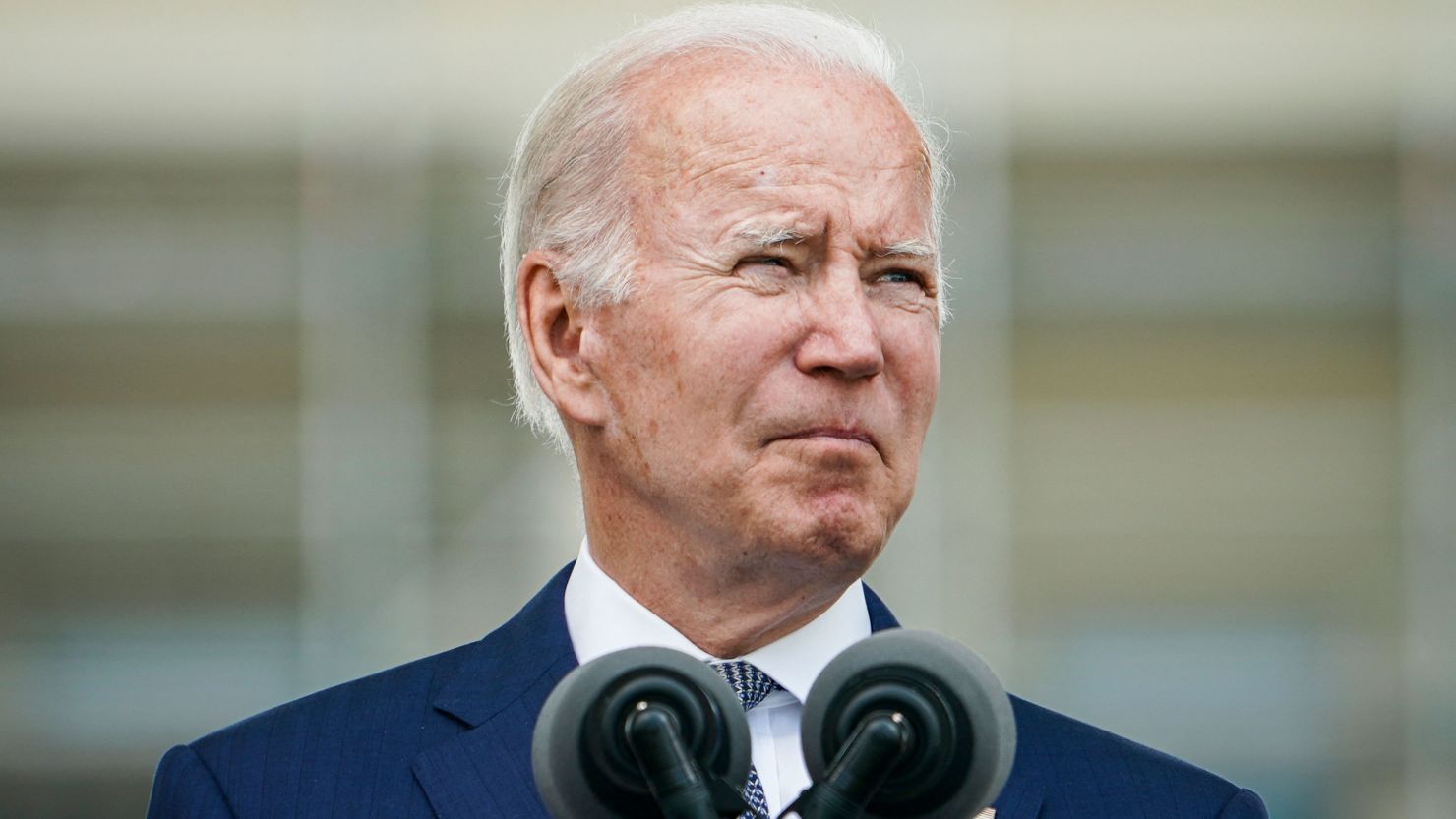Here’s President Joe Biden on Americans, from an interview Thursday with The Associated Press:
“They’re really down. The need for mental health in America, it has skyrocketed, because people have seen everything upset. Everything they’ve counted on upset. But most of it’s the consequence of what’s happened, what happened as a consequence of the Covid crisis.”
Which is, well, sort of rough?
It’s the latest in a series of comments from Biden in which he acknowledges that people are struggling – and saying he is limited in what he can do about it.
Earlier this week, Biden admitted that inflation was “sapping the strength of a lot of families.”
And earlier this month, he said this: “There’s a lot going on right now, but the idea we’re going to be able to click a switch, bring down the cost of gasoline, is not likely in the near term. Nor is it with regard to food.”
Biden also conceded that he did not immediately anticipate the scope of the baby formula shortage. And his members of his administration, most notably Treasury Secretary Janet Yellen, have admitted that they did not expect the spike in inflation to last this long or cut this deep.
The message is simple: Things are really rough right now and there’s not much I (or anyone) can do about it.
Which is not a great message for a president or a party – especially less than five months out from the midterm elections.
Biden’s position is, of course, not an easy one. While unemployment is low and there are other strong economic indicators, the increased cost of basic goods like food and gas makes it hard to convince people that things are going well.
Shortages of baby formula – and, more recently, tampons – add to the sense that America is struggling.
And the public quite clearly feels that way. In a Gallup survey released last month, only 16% of Americans said they were satisfied with the way things are going in the country, while 83% said they were dissatisfied. That marks the lowest point in Gallup’s polling since the aftermath of the January 6, 2021, riot at the US Capitol.
Given that general sense of pessimism, it would be akin to political catastrophe for Biden to act as though everything was hunky dory in the country. He would look deeply out of touch and detached – two traits voters really don’t like in their politicians.
At the same time, Biden must be careful not to lean too hard into the malaise argument. Americans also expect their politicians to be optimistic about the country’s future, a sort of cheerleader-in-chief.
We’ve seen the political peril of being perceived as too downcast about America’s direction.
Amid an energy crisis – sound familiar? – then-President Jimmy Carter delivered a nationally televised address in July 1979 which came to be known as the “malaise” speech. (That’s ironic since Carter never used the word “malaise” in the speech.)
Here are the most famous/infamous lines from that address:
“The threat is nearly invisible in ordinary ways.
“It is a crisis of confidence.
“It is a crisis that strikes at the very heart and soul and spirit of our national will. We can see this crisis in the growing doubt about the meaning of our own lives and in the loss of a unity of purpose for our nation.
“The erosion of our confidence in the future is threatening to destroy the social and the political fabric of America.”
Carter’s goal was simple: To make sure the American public knew that he understood that things weren’t going great in the US and to rally them behind a shared sense of purpose.
The speech backfired in the long term. Carter was successfully cast by Ronald Reagan as a dour pessimist who believed that America’s best times were behind it. Reagan, by contrast, cast himself as a sunny optimist.
Sixteen months after Carter delivered the malaise speech, he was easily defeated by Reagan in the 1980 presidential election – garnering just 49 electoral votes.
Biden, obviously, wants to avoid that fate – if he runs again in 2024. But at the moment, the messaging coming from Biden and his White House is decidedly downcast. And if it continues, that could compound Democrats’ already dire political prospects in advance of the 2022 midterms.



